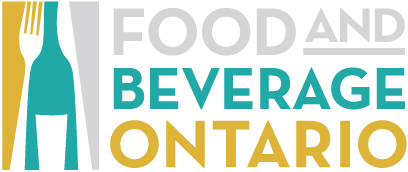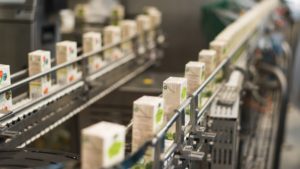Update from Industry Engagement Division at Agriculture and Agri-Food Canada
Please continue to consult the AAFC website regularly for updates. This week, we redesigned our webpage to make it easier to navigate so that you can find the information you’re most interested in. We also added information on AAFC new job portal (Step up to the plate – help feed Canadians), the Government of Canada’s support available to the sector and on international trade. We encourage you to check out the new look and to let us know if you have any feedback.
- COVID-19 Guidance – Canadian Centre for Occupational Health and Safety (CCOHS) and Canadian Agricultural Human Resource Council (CAHRC)
For additional guidance on how to operate during the COVID-19 pandemic, please consult the CCOHS’s free tip sheets and free online courses. You can also visit the CAHRC’s website to obtain templates for pandemic preparedness plans.
- COVID-19 Guidance – Food Processing Skills Canada (FPSC)
FPSC has two online courses they have made available to specifically support food and beverage manufacturers during the COVID-19 global pandemic. Both courses – “Managing the Virtual Workforce” and “National Sanitation Training Program” can be accessed within the Canadian Food Processors Institute at no cost by using the code FPSChelps at checkout.
- NEW Public Safety PPE and Sanitization Products Inventory Survey – Extended until 8:00 AM EST, Monday, May 4, 2020
The deadline to fill out Public Safety Canada’s second survey to capture more in-depth data with respect to PPE supply and demand has been extended until 8:00 AM EST, Monday, May 4, 2020. If you have not already done so, we strongly encourage you to fill out this survey. It seeks to capture organization contact information and sub-sector information, and to better articulate supply chain challenges and projected PPE shortages.
- Licence to Import Personal Protective Equipment (PPE)
Further to a question that was raised during our daily conference calls regarding the need for a license to import PPE, Health Canada indicated that there are no licensing requirements for businesses that purchase medical devices solely for use by their employees during work activities (e.g. first aid kits, disposable gloves) or for incidental emergency use, as long as it is clear that the business is the ultimate consumer AND is not in the business of offering healthcare services to employees or other individuals. It is recommended that you ensure the shipment is clearly indicated /labelled “for personal use” so it isn’t mistaken for commercial use. If you would like more information about your import, you can contact Health Canada’s Health Border Compliance Program at: hc.hpbcp-pcpsf.sc@canada.ca.
Please also note that some pieces of PPE may not qualify as a medical device, therefore they are not subject to the regulatory requirements relevant to the Food and Drugs Act. To obtain guidance on a particular piece of PPE, Health Canada has a dedicated inbox for any question related to Medical Device Establishment Licences: hc.mdel.questions.leim.sc@canada.ca.
- Canadian Food Inspection Agency (CFIA) Interim Guidance on Sending Food Export Certificates to Foreign Countries during COVID-19
We wish to inform you that the Canadian Food Inspection Agency (CFIA) has published interim guidance on sending scans of export certificates to foreign competent authorities. Please refer to “Sending food export certificates to foreign countries during COVID-19” on the COVID-19: CFIA information for industry page.
In most cases, sending original, paper export certificates and related annexes or any other CFIA-issued export documents to foreign country border control points continues to be the preferred practice.
This guidance is temporary until the impacts of COVID-19 are resolved. Food exporters may contact their local CFIA office for questions or concerns.
- Canada Emergency Student Benefit
On April 22, 2020, the Prime Minister, Justin Trudeau, announced the Canada Emergency Student Benefit, which would provide $1,250 per month for eligible students (or $1,750 per month for eligible students with dependents or disabilities) who are not eligible for the Canada Emergency Response Benefit. This financial support will be provided for eligible students who have demonstrated that they actively searched and were not able to find a job.
We strongly encourage you to list available jobs online where students can find them and to connect to the new AAFC job portal (Step up to the plate – Help feed Canadians).
Update on international supply chains
United States
The United States continues to face challenges in the processing industry as a number plants are facing closures and/or operating at reduced capacity due to COVID-19. Plant closures are causing production to back up. This is having an effect on prices and the ability to find markets for their animals.
On April 28, 2020, President Trump signed an Executive Order (EO) declaring meat and poultry plants as critical infrastructure. He delegated authority to the Secretary of Agriculture under the Defense Production Act (DPA) to ensure the continued supply of meat and poultry. This will ensure that processors continue operations to the maximum extent possible and consistent with the guidance issued by the Center for Disease Control (CDC) and the Occupational Safety and Health Administration specific for meat and poultry workers.
That said, CDC’s guidance for critical infrastructure workers advises that these workers may be permitted to continue to work following potential exposure to COVID-19 provided they remain asymptomatic and additional precautions are taken. The USDA will work with meat processing to affirm they will operate in accordance with this guidance, and then work with state and local officials to ensure that these plants are allowed to operate.
European Union
Agri-food supply chains continue to function despite certain challenges when it comes to transportation and logistics. Over the past few weeks, European countries have begun to gradually ease measures put in place to stop the spread of COVID-19. However, restaurants and other businesses will be slow to re-open given ongoing risks.
Spain was the first of the hardest-hit EU countries to begin opening up on April 13.
Italy announced that it will begin relaxing COVID-19 measures on May 4, with bars and restaurants reopening for takeaway service (currently just delivery). Bars and restaurants may be allowed to reopen for dine-in service starting early June (with social distancing measures in place), although no final decision has been made.
Industry Engagement Division / Division de la consultation du secteur
Agriculture and Agri-Food Canada / Agriculture et Agroalimentaire Canada
Government of Canada / Gouvernement du Canada




